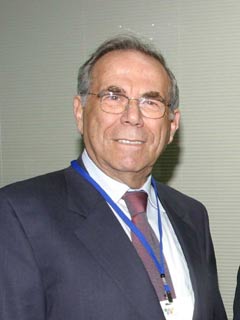A Quote by Gary Wolf
Related Quotes
MapReduce has become the assembly language for big data processing, and SnapReduce employs sophisticated techniques to compile SnapLogic data integration pipelines into this new big data target language. Applying everything we know about the two worlds of integration and Hadoop, we built our technology to directly fit MapReduce, making the process of connectivity and large scale data integration seamless and simple.
We get more data about people than any other data company gets about people, about anything - and it's not even close. We're looking at what you know, what you don't know, how you learn best. The big difference between us and other big data companies is that we're not ever marketing your data to a third party for any reason.
I've been saying for a long time, and I think you'll agree, because I said it to you once, had we taken the oil - and we should have taken the oil - ISIS would not have been able to form either, because the oil was their primary source of income. And now they have the oil all over the place, including the oil - a lot of the oil in Libya, which was another one of her disasters.
I do not remember when I said this [oil production would collapse ], maybe in the heat of the moment, but I do not think I even said it, but I may just not remember it. I was saying that at a certain level of oil prices new deposits will not be explored. That is what is actually happening. However, surprisingly, our oil and gas workers [mainly oilmen] continue to invest.
The ability to collect, analyze, triangulate and visualize vast amounts of data in real time is something the human race has never had before. This new set of tools, often referred by the lofty term 'Big Data,' has begun to emerge as a new approach to addressing some of the biggest challenges facing our planet.
I think in the end, you know, we're just addicted to oil. We've got to overcome that addiction, and we need some serious accountability of big oil, because big oil, like so much of big businesses, has just colonized our government, colonized the regulatory agencies so we can't impose any kind of accountability on them.
































